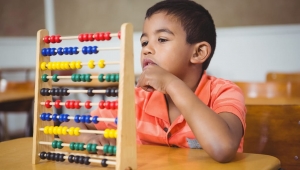For young children, a nursery is often their first experience away from home — a place where they begin to explore independence, form friendships, and discover their own sense of identity. While academic preparation and play-based learning are vital parts of early childhood education, emotional safety forms the foundation upon which all learning and development thrive.
When children feel safe, seen, and supported, they are more likely to explore, express themselves, and build the confidence needed to navigate the wider world.
What Is Emotional Safety in a Nursery Setting?
Emotional safety refers to an environment where children feel secure, respected, and valued. It's not just about physical protection — it's about creating a nurturing atmosphere where children know their feelings matter, where mistakes are treated as learning opportunities, and where caregivers respond with empathy and understanding.
Children who experience emotional safety in early education are more likely to develop healthy self-esteem, strong communication skills, and emotional intelligence. They feel comfortable asking for help, forming friendships, and trying new things, all of which are key components of early development.
At a top Nursery in Wembley, educators recognise that emotional well-being is as essential as academic growth. Their focus extends beyond structured activities to creating spaces filled with warmth, consistency, and trust — helping children feel confident and cared for every day.
Why Emotional Safety Matters in Early Years Education
In the first five years of life, children's brains develop faster than at any other stage. During this period, their emotional experiences shape how they perceive the world and form relationships later in life. Nurseries that prioritise emotional safety help children develop resilience and empathy — two traits that serve as building blocks for lifelong well-being.
When children feel emotionally safe:
-
They engage more deeply in play and exploration.
-
They communicate openly with teachers and peers.
-
They learn to regulate emotions and manage frustration.
-
They build trust in adults, which fosters long-term confidence.
Emotional safety also enhances cognitive development. When children are calm and supported, their brains can focus on learning rather than self-protection. This balance of emotional and intellectual engagement is what makes nurturing nurseries so effective.
Building a Culture of Care and Connection
Creating an emotionally safe environment starts with the adults. Nursery practitioners play a crucial role in modelling empathy, patience, and understanding. When teachers respond calmly to children's emotions — whether it's frustration, sadness, or excitement — they teach emotional regulation through example.
Simple actions such as greeting each child warmly, maintaining consistent routines, and using positive language make a significant difference. These small yet powerful gestures communicate: You belong here. You are safe. You are loved.
A Private Nursery in Wembley often incorporates this philosophy into its daily practice. Educators take the time to get to know each child personally — their interests, fears, and unique ways of expressing themselves. This personal connection ensures that every child feels recognised as an individual, not just part of a group.
Encouraging Emotional Expression Through Play
Play is one of the most effective ways for children to process and express their emotions. Through imaginative play, storytelling, and role-play, children learn to navigate feelings, understand empathy, and build social skills.
In emotionally safe nurseries, playtime is not just recreation — it's a form of emotional communication. Teachers observe children's play to understand their emotional world and provide gentle guidance when needed. Whether a child is pretending to be a superhero, a doctor, or a parent, these moments offer valuable insights into how they perceive and respond to different situations.
The Role of Consistency and Routine
For young children, predictability provides comfort. Consistent routines — such as snack times, story sessions, and outdoor play — give structure to their day and reduce anxiety about what comes next. Nurseries that maintain reliable routines help children develop trust in their environment and caregivers.
When children know what to expect, they feel more in control and confident to explore their surroundings. Emotional safety, therefore, isn't about removing all challenges but about providing a stable framework within which children can take safe risks and learn from experience.
Partnering with Parents for Emotional Development
Emotional safety doesn't end when the nursery day is over. Strong partnerships between parents and nurseries are vital in supporting children's emotional well-being. Open communication ensures that teachers understand each child's background, personality, and home routines.
When parents and educators collaborate — sharing updates, discussing challenges, and celebrating milestones — children receive consistent emotional support across both home and nursery settings. This continuity reinforces feelings of stability and belonging, key ingredients for emotional growth.
The Lasting Impact of Emotional Safety
Children who grow up in emotionally supportive environments are better equipped to handle challenges throughout life. They develop empathy, resilience, and a strong sense of self-worth — qualities that extend far beyond the classroom.
In nurseries where children are seen, heard, and understood, education becomes a joyful journey rather than a stressful obligation. The seeds of emotional intelligence sown in these early years continue to shape compassionate, confident, and well-adjusted individuals.
Conclusion
Emotional safety in nursery settings is the heart of effective early childhood education. When children feel safe and supported, they are free to learn, play, and grow into their best selves. Nurseries that prioritise care, connection, and emotional understanding provide not only education but a foundation for lifelong well-being.
In an age where emotional intelligence is as valuable as academic success, creating environments where children feel truly seen and valued is more important than ever. It's within these nurturing spaces that the brightest futures begin.






